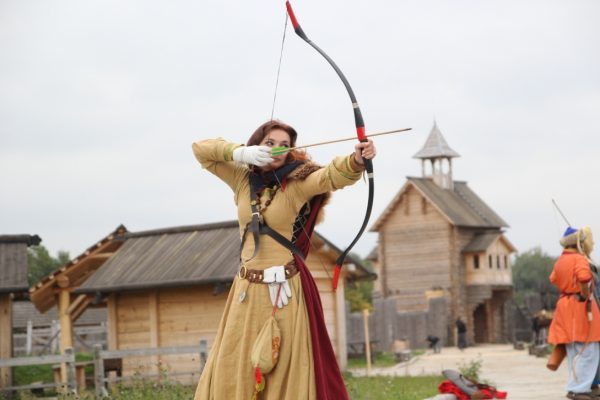Someone told me today that the prayers of the Church are the same each Sunday (they are) and he needed something “more” that reaches “deeper”. I thought about this driving home. Here is my answer:
Prayers are like arrows. The ones we pray each Sunday are strong, sharp, arrows. If they weren’t they would have fallen into disuse centuries ago. Things that don’t work are cast off.
The archer, on the other hand, has to learn how to shoot the arrow. He can change arrows every Sunday, but changing the arrows doesn’t make him a better archer. Only practice does, and a good teacher of archery gives him the best arrows, because once they hit the bulls-eye, the archer knows he has made progress.
Prayers are words. But some words are fitting for approaching God and others aren’t. The prayers we pray (alongside the forms in which they are spoken) have been given to us by men much more practiced in the Christian faith than we are. They designed, shaped, and sharpened the arrows. We need to trust them until we become a better archer.
Then, as progress comes and we learn how to pray better, we see that the reason the prayers are the same Sunday after Sunday is because the words themselves have life. Progress is understanding that the prayers not only reach God in ways fitting for Him, but shape and form us as the same time.
Self-discipline in other words is the antidote to sentimentality, the substitution of good feelings for strength of mind and character and purity of the heart. The prayers are a means by which self-discipline is learned (the “how to do it” part of the Christian life). We learn how to approach God with the maturity and sobriety necessary to come to know Him as He is just as He already knows us.
And in that sobriety and maturity we come to see that the best prayers are the ones already given to us. That’s why we pray them every Sunday.
















